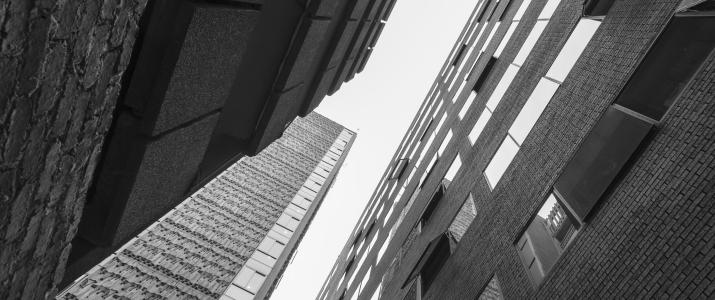
Hotelier Andrew Bannister loves Braamfontein because it’s central in Johannesburg, with easy access to the highways and railways. It also has the advantages of a very good improvement district, and an effective security system.
He began by renting the second floor of his building on De Beer Street as a photography studio in 1996, then bought the building in 2002 when Braamfontein was going into an “ugly decline”.
“In 2008 Braamfontein started improving and I started looking for money to turn the building into a hotel, which was the worst time to borrow money because of the global financial crash. The IDC lent me money, and we’ve been operating the hotel since 2012. Braamfontein’s turnaround over the last decade has been far better than I could have hoped for,” he says.
He learned “the hard way” how to run a hotel and got “ripped off a lot”, but things started working in the last few years, which enabled him to survive Covid and the lockdown. Fortunately, the IDC did not demand payments during the hard lockdown, and he came up with an innovation: “I imported a container of fog-sprays from China, and during the hard lockdowns, selling them was practically our only form of income, which saved our arses.”
In the first lockdown they had one self-isolating guest and 22 staff moved into the building to avoid having to travel on public transport. In order to survive, Andrew retrenched about half of his staff. He got some help from the Temporary Employment Relief Scheme and The Solidarity Fund loaned him some money to pay his staff. “Luckily for us had no Covid outbreaks at the hotel, probably due to our cleaning and attention to ventilation. I gave the staff Vitamin D and Zinc during the waves. Only one staff member tested positive in the last 18 months, which we are very proud of.”
The restaurant has helped hugely, despite the curfews, says Andrew. “We have used this time to run a tighter ship and cross-skill staff. The lockdown helped in that regard. Our food is now better, and the staff I have now are all very good; they are hard workers. The lockdown has taught us that we can operate with a lot less staff.”
The hotel still hasn't hit 30% occupancy this year – hotels typically break even at about 50%. “And take into account the fact that one of our neighbour competitors, Once Hotel Johannesburg, closed at the beginning of lockdown.” The hotel’s clientele is largely young professionals and visitors from other African countries on business and shopping trips, but the Covid tests on the borders have meant fewer guests.
Andrew says that Braamfontein is largely dependent on students, who haven’t been coming to lectures. “We really need the lockdowns to end, and the students to come back; a lot of shops have closed down here. The lockdowns HAVE to be lifted; the restrictive trading hours are hurting us badly.”
“There used to be several art galleries here, but now there’s only a couple left. There’s also a lot of bars that one can visit and meet people. I enjoy it when the students are here: they are so optimistic and energetic. It’s been amazing witnessing struggling students grow into well-paid professionals. I also loved the Neighbourgoods Market, which had a really great vibe and good food, but they have been closed since the lockdown began. Hopefully they will be coming back.”